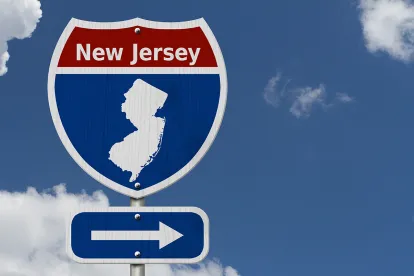The New Jersey Department of Environmental Protection (“DEP”) published notice on May 17, 2021 of its March 31, 2021 adoption of amended remediation standards set forth at N.J.A.C. 7:26D-1.1 et seq. (55 N.J.R. 775). It also released a plethora of new and updated guidance documents intended to assist remediation professionals and responsible parties navigate the rule requirements. The amended rules were adopted with little change from DEP’s April 6, 2020 rule proposal notwithstanding extensive substantive comment and objections by various industry groups representing parties who engage in remediation, including NJBA. The amended remediation standards may have ramifications for persons currently engaged in remediation and, potentially, persons who previously completed a DEP-regulated remediation.
The amendments, among other things: make changes to the applicable standards for regulated substances, in some cases establishing more stringent standards and in other cases relaxing standards; implement remediation standards specific to health exposure pathways, including the ingestion-dermal pathway and inhalation exposure pathway; create soil and soil leachate standards in contrast to the prior screening levels that were used to create site-specific standards; and establish indoor air standards based on vapor intrusion.
Persons responsible for remediation will need to evaluate the amended standards to assess whether they impose additional burdens or present an opportunity for reduced obligations. Particular care should be given to such assessment with respect to remediation being performed in the context of pending transactions, and purchasers should ensure that the scope of required remediation satisfies the amended rule requirements.
The rules have an immediate effective date of May 17, 2021. However, parties currently engaged in remediation may be able to take advantage of a 6-month phase-in period. To do so, and rely on the previously existing standards, the remediating party must be in compliance with applicable remediation timeframes and submit a compliant remedial action work plan or remedial action report to DEP by November 17, 2021. Such “grandfathering” does not apply in the context of standards that have changed by an “Order of Magnitude” (e.g., the standard has changed by a factor of 10). To the extent that the amended rules implicate new compliance obligations based on the changed standards and as a result, the remediating party is unable to meet applicable remediation timeframes, DEP’s rule adoption document recognizes that the requirement to meet new standards would provide a basis to support an application for an extension of the applicable remediation timeframes.
It will also be critical to evaluate whether the amendments may impact previously completed remediation that has obtained a Response Action Outcome (“RAO”) or other Final Remediation Determination (“FRD”). Under the Brownfield Act, N.J.S.A. 58:10B-13e, persons with liability under the Spill Act who have completed remediation pursuant to standards applicable or approved by DEP at the time of completion of the remediation may be responsible for additional remediation if DEP subsequently adopts a more stringent remediation standard that differs by an Order of Magnitude from the level or concentration of the contaminant at the subject parcel and if such person does not qualify for the affirmative innocent purchaser defense to liability under the Spill Act. Some of the amended remediation standards adopted by DEP differ from the prior standards by an Order of Magnitude. For example, the soil remediation standard for ethylbenzene, a gasoline component, and common contaminant, has changed by an Order of Magnitude. In its adoption document, DEP takes the position that Order of Magnitude changes in prior remediation standards apply even in the context of conversion of prior screening levels (which were not adopted as standards) to remediation standards, on the theory that such screening levels were utilized by responsible parties and LSRP’s to establish standards on a site-specific basis, case-by-case basis.
The amended rules also establish remediation standards for new exposure pathways. Industry groups raised the concern that this action may implicate the potential for the re-opening of previously completed remediation cases pursuant to N.J.A.C. 7:26C-6.4(a)3. DEP responded to such comments in the adoption document as follows: “[i]t is not [DEP’s] intent to reopen every site that has a [FRD] to evaluate every contaminant for the [new] migration to groundwater exposure pathway and indoor air vapor intrusion exposure pathway. However, [DEP] requires the [responsible party] to evaluate those contaminants found at closed sites that are subject to the order of magnitude provision.” Thus, in cases where a new exposure pathway is regulated, an Order of Magnitude change in a remediation standard will remain the basis for potential re-opener and the involved LSRP will need to assess whether the previously implemented remedy remains protective.
In cases where the amended rules implicate re-opening a prior remediation case, it is anticipated that evaluation of potential additional remediation obligations will occur at the time of submission of biennial certifications for sites that are remediated to a restricted or limited restricted use remediation standard and are subject to a remedial action permit. For unrestricted use remediation sites, an evaluation will likely be market-driven, being raised by lenders or purchasers conducting due diligence in the context of potential transfers involving real property.
Given the scope and potential implications of the amended rules in the context of existing and previously closed remediation cases, parties with responsibility for remediation sites are encouraged to consult with their professionals to carefully consider the potential impacts of this rule.









 />i
/>i

